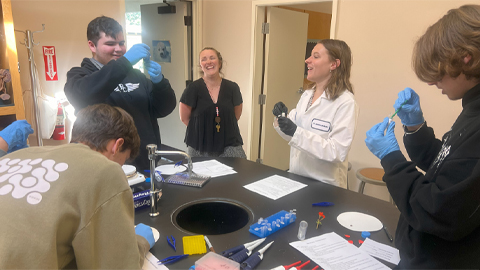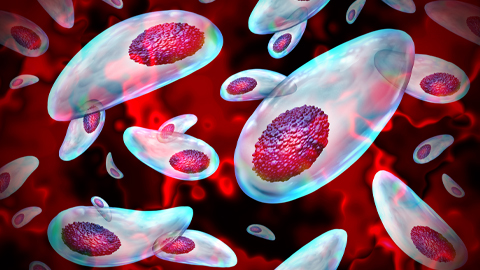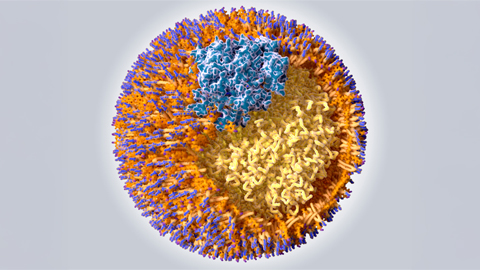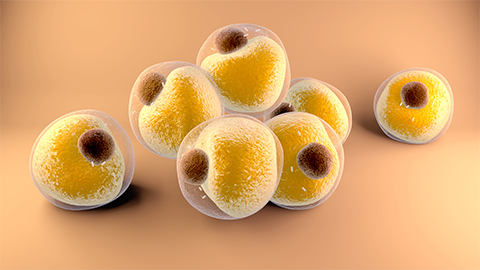The International Lipidomics Society: Who we are and where we are heading
The human body must regulate lipid metabolism and signaling tightly to maintain homeostasis. Loss of control can result in unwanted cascades of events triggering disorders and diseases such as insulin resistance, metabolic syndrome, lipidic storage diseases, neurodegenerative disorders or cancer. Lipidomics technologies have evolved to monitor such changes, with researchers expecting these technologies to provide improved opportunities to study lipids in health and disease and advance lipid biology at systems scale, including complex lipid signaling and metabolism.

lipidomics standards guidelines; reference materials; clinical lipidomics;
instrumental and methodological workflows; and tools for applied bioinformatics,
ontology and better understanding of lipid function, thereby stimulating
communication among lipid biology, medicine and surrounding disciplines.
Methodologies, workflows and data presentation differ vastly in lipidomics, and many studies do not report absolute lipid concentrations. This hinders biological interpretation, which only can be done using quantified molecule numbers, such as in moles. The broadly recognized discrepancies in published data, such as misidentification and broader issues of irreproducibility, weaken lipidomics research and hinder its use as noted in a paper by Gerhard Liebisch, Robert Ahrends and other members of the Lipidomics Standards Initiative Consortium in the journal Nature Metabolism in August 2019. This has a negative effect, causing deliveries in market segments to fall short and interfering with advances in drug and biomarker discovery programs, interlaboratory studies and transitions into clinical practice.
To start tackling these challenges, we have formed the International Lipidomics Society, or ILS, with the aim of fostering international communitywide coordination and communication to create lipidomics-specific guidelines for good scientific practice and future development.
We founded the ILS in June 2019 with Gerhard Liebisch, Harald Köfeler, Michal Holčapek, Xianlin Han and Markus Wenk. The society sees itself as the point of contact for lipidomics research, development and commercialization. By working together, we aim to unlock the full potential of lipidomics and its adoption in the clinical arena.
Our goal is to stimulate conversation with our colleagues in lipid biology, medicine and related disciplines. We intend to engage researchers around the globe who are working on developing lipidomics standards guidelines, reference materials, clinical lipidomics, instruments and methodologies. We also have started interest groups that are working on such hot topics as applied bioinformatics, lipid ontology and lipid function. All these groups are up and running and are engaging with the ILS; the first white papers are on their way to transform lipidomics research.
During the first year of the ILS, we held vibrant workshops on subject areas including lipidomics bioinformatics. Participants discussed topics such as one-stop workflows, data formats, visualization of lipidomes and the engagement of junior researchers. The interest group reference materials included the first intercontinental ceramide ring trial across 47 labs. Similar activities now are being organized by our clinical lipidomics group. The Lipidomics Standards Initiative released updated lipid nomenclature together with our friends at Lipid Maps and currently is publishing new guidelines for lipidomics research.
In total, more than 800 attendees have visited our workshops and symposia and engaged with the most pressing challenges in the field.
For more information, visit us at lipidomicssociety.org and connect with us at contact@lipidomicssociety.org.
Enjoy reading ASBMB Today?
Become a member to receive the print edition four times a year and the digital edition monthly.
Learn moreGet the latest from ASBMB Today
Enter your email address, and we’ll send you a weekly email with recent articles, interviews and more.
Latest in Science
Science highlights or most popular articles

E-cigarettes drive irreversible lung damage via free radicals
E-cigarettes are often thought to be safer because they lack many of the carcinogens found in tobacco cigarettes. However, scientists recently found that exposure to e-cigarette vapor can cause severe, irreversible lung damage.

Using DNA barcodes to capture local biodiversity
Undergraduate at the University of California, Santa Barbara, leads citizen science initiative to engage the public in DNA barcoding to catalog local biodiversity, fostering community involvement in science.

Targeting Toxoplasma parasites and their protein accomplices
Researchers identify that a Toxoplasma gondii enzyme drives parasite's survival. Read more about this recent study from the Journal of Lipid Research.

Scavenger protein receptor aids the transport of lipoproteins
Scientists elucidated how two major splice variants of scavenger receptors affect cellular localization in endothelial cells. Read more about this recent study from the Journal of Lipid Research.

Fat cells are a culprit in osteoporosis
Scientists reveal that lipid transfer from bone marrow adipocytes to osteoblasts impairs bone formation by downregulating osteogenic proteins and inducing ferroptosis. Read more about this recent study from the Journal of Lipid Research.

Unraveling oncogenesis: What makes cancer tick?
Learn about the ASBMB 2025 symposium on oncogenic hubs: chromatin regulatory and transcriptional complexes in cancer.


